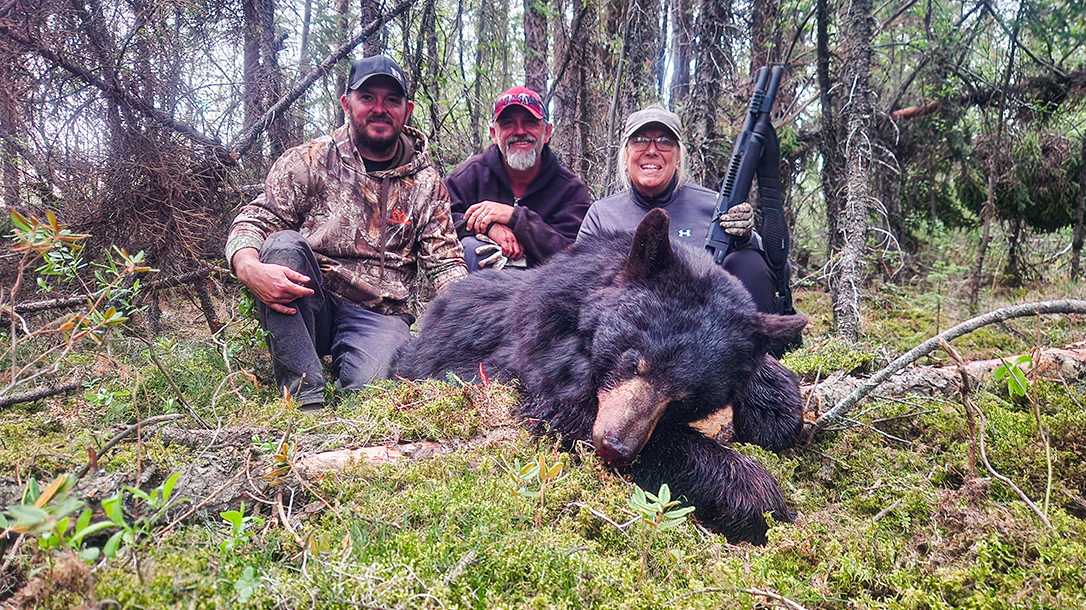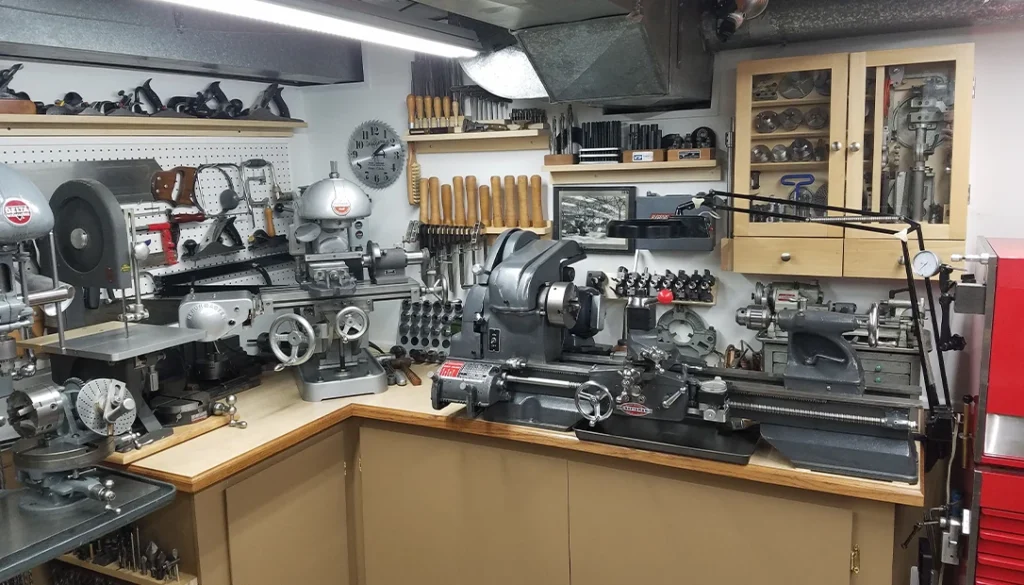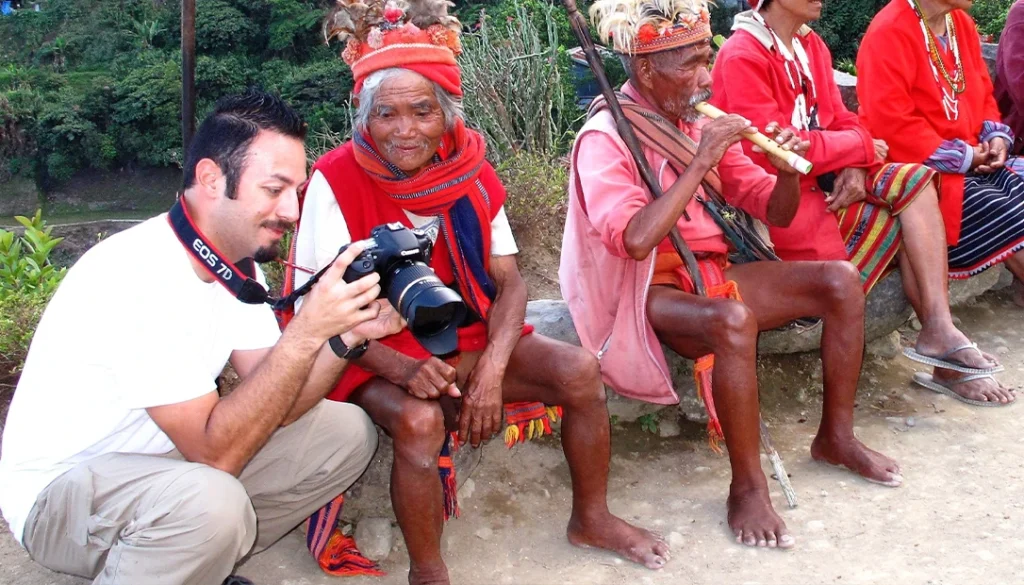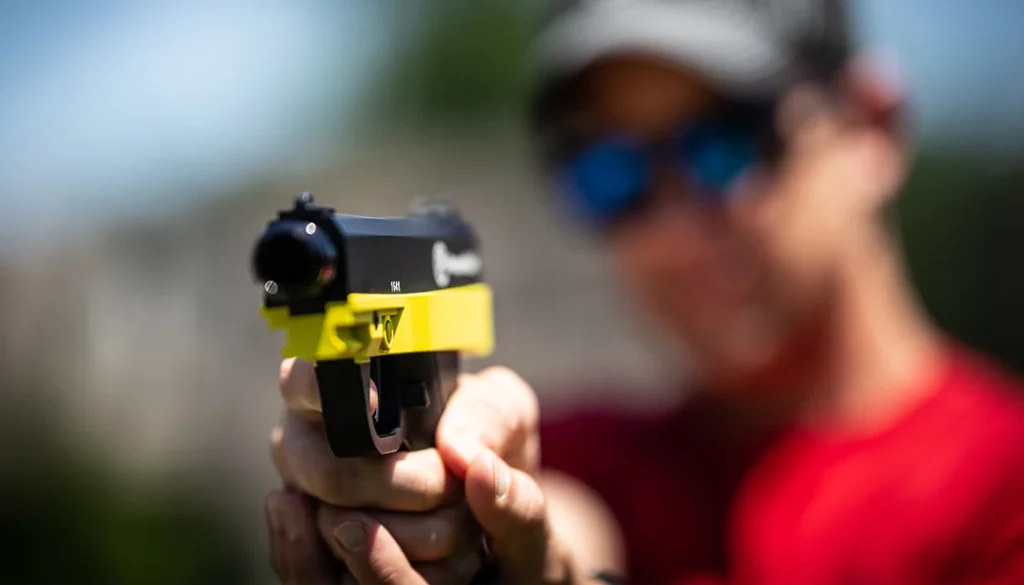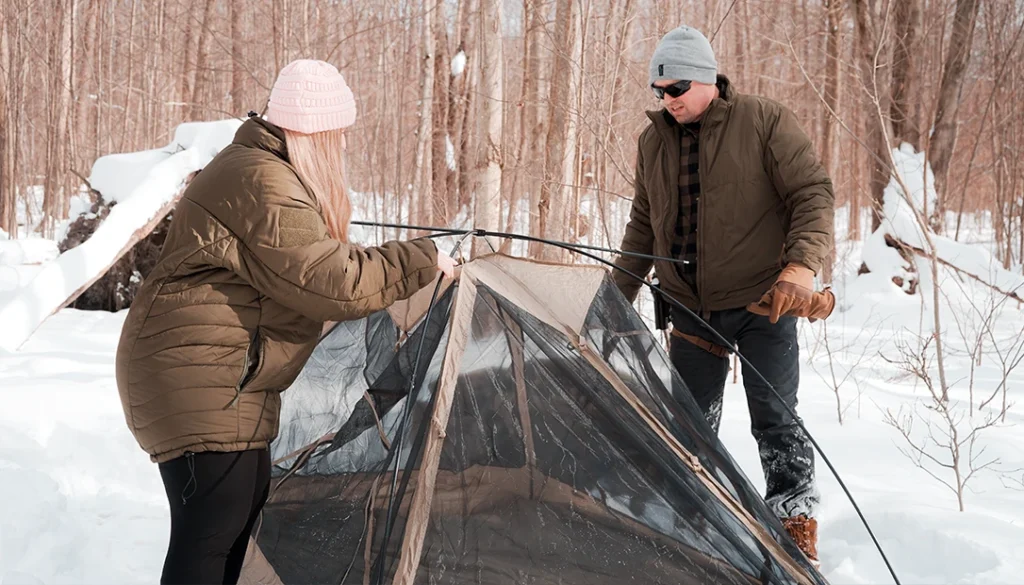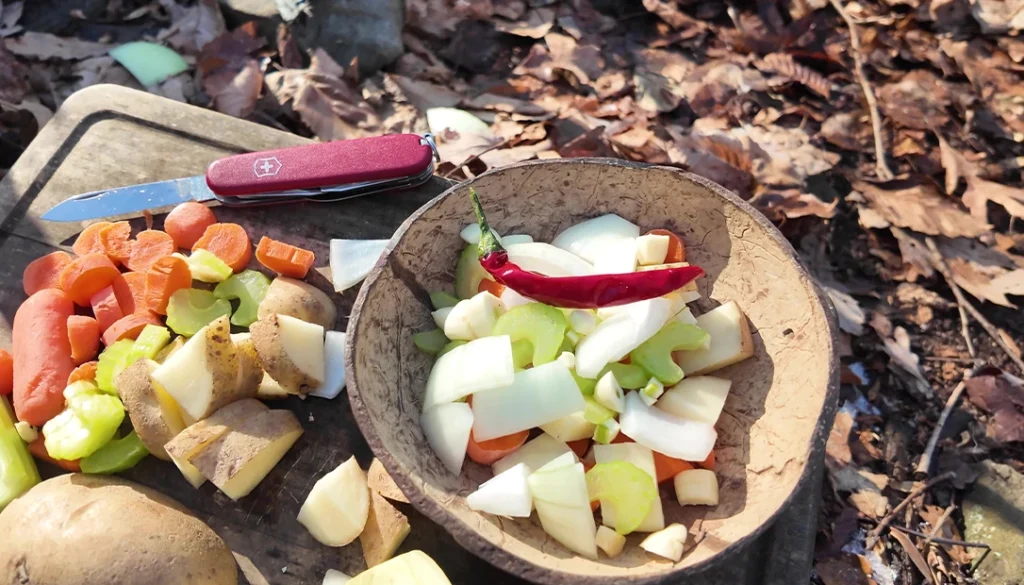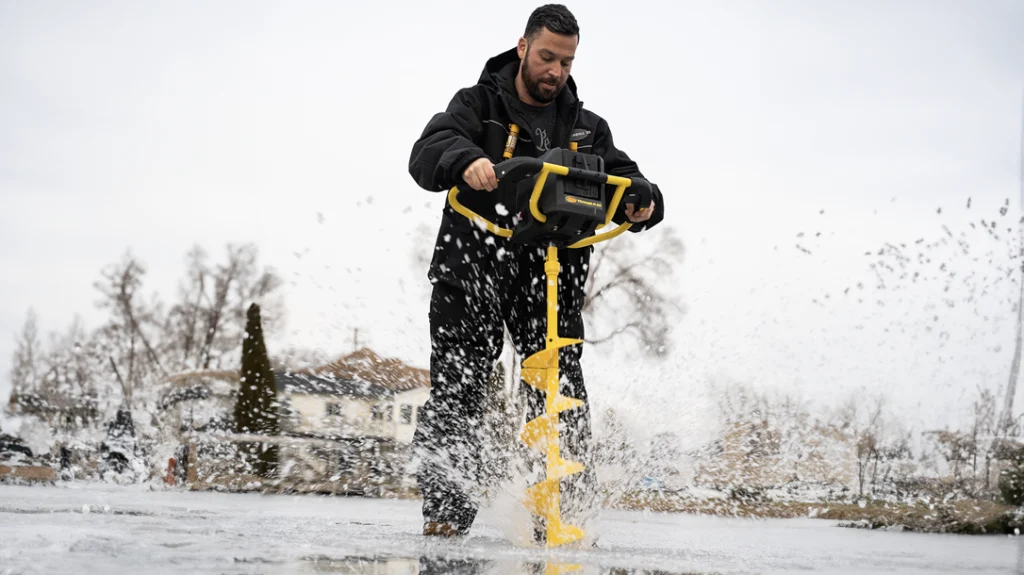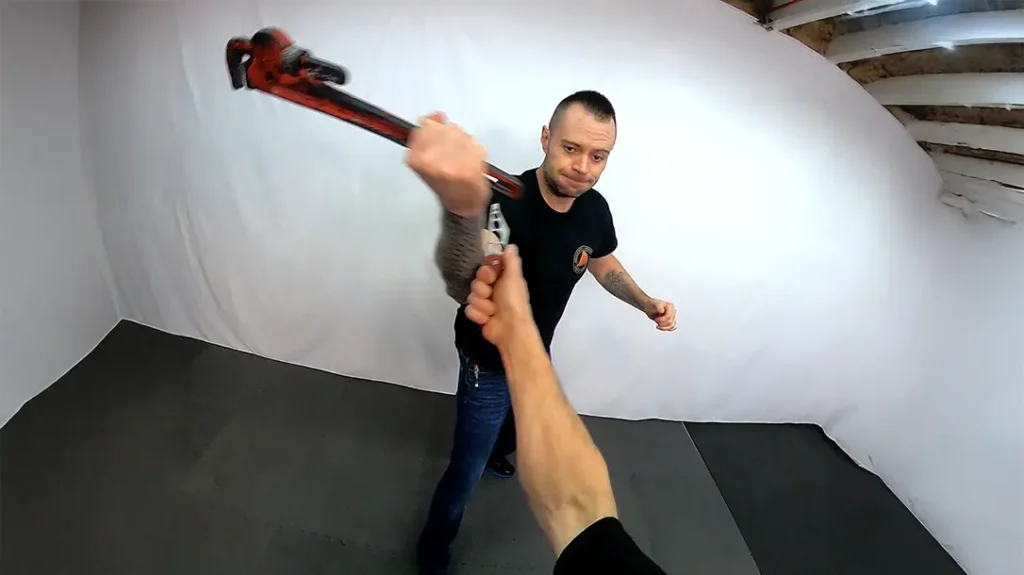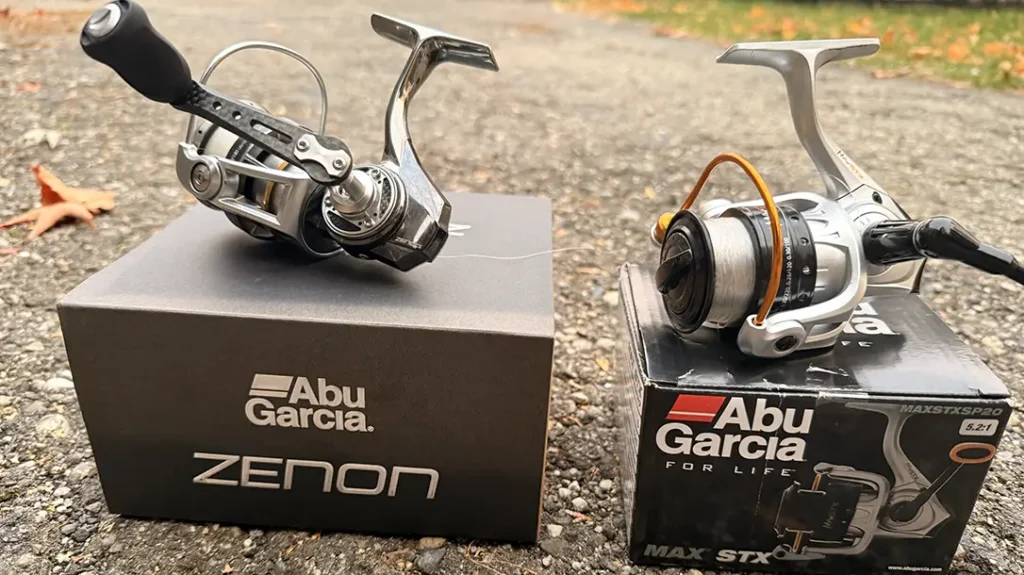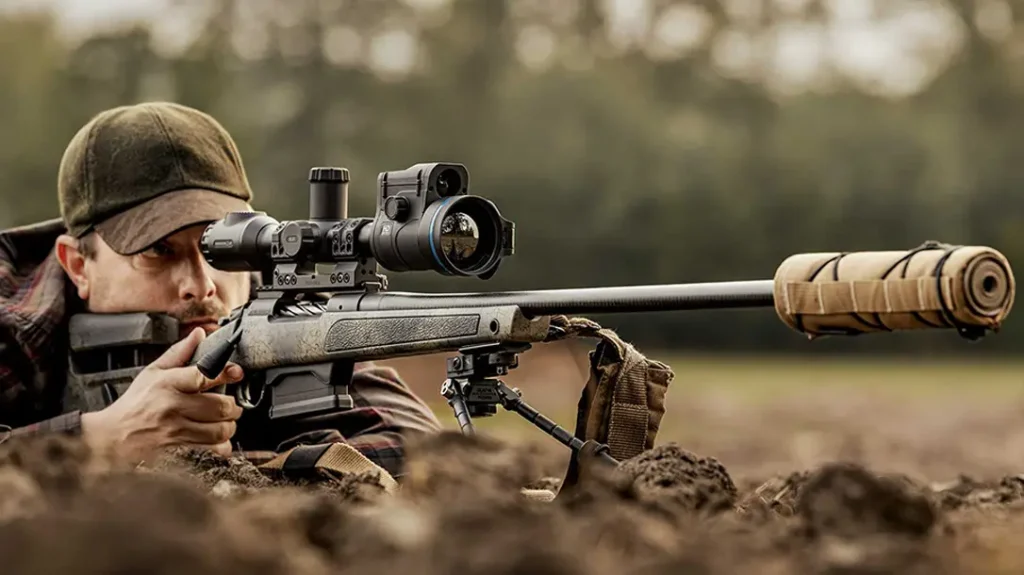I have been pleasantly surprised to see more and more people heading into the wild for hunts. For many, the unknown is what stops them from putting on the camo and jumping in the truck. As a humble attempt to help educate people, I will discuss what a guided hunt camp is like. Knowing what to expect in guide camp will help ease your mind and make it more enjoyable.
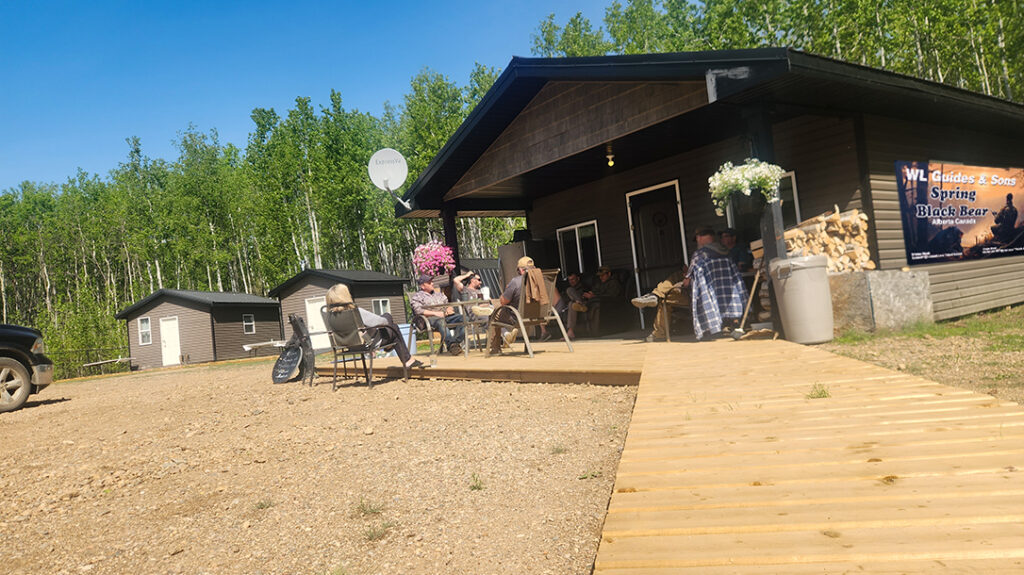
Things to Know for Your First Guide Camp
The first thing I need to share is that all camps are not the same. In many African safari hunts, for example, the camp is usually a very nice lodge with big beds, world-class service, and gourmet-level food. This is not the case in most U.S. hunt camps. At the same time, many camps are very nice, comfortable, and filled with excellent food. Some will even rival African camps. Educating yourself about what the guide offers is essential to avoid any disappointment. Just remember that you are not heading to the Four Seasons for a getaway. You are hunting.
Advertisement — Continue Reading Below
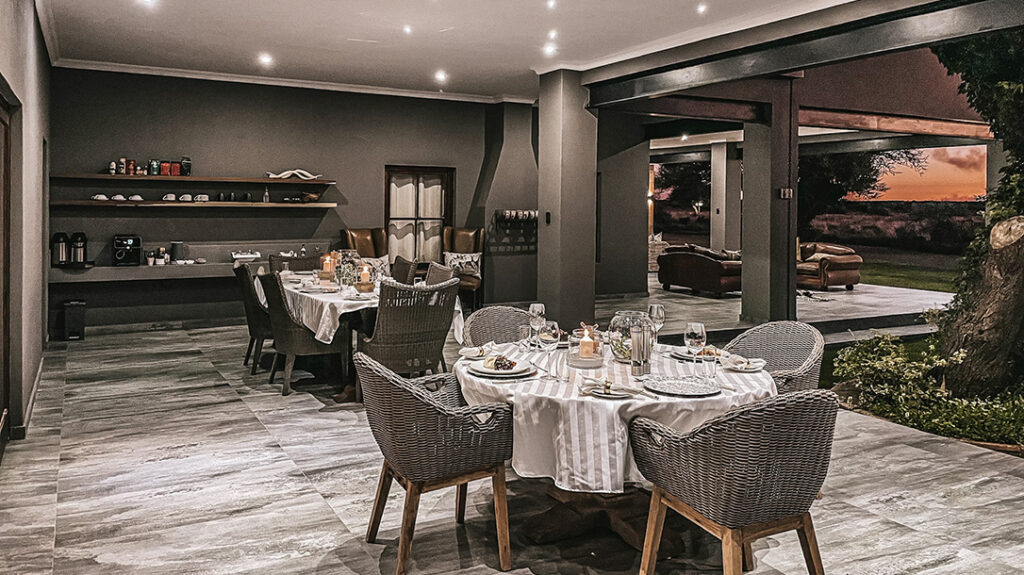
Meals
In the same year, I attended a camp that served us lunchmeat on dinner rolls for lunch, while another camp had an in-house cook who made food you would leave your family for. In both examples, though, I just went with the flow and thoroughly enjoyed my time there. There will be three meals each day, based around hunting times. The meals will also depend on the hunt you are on. If you are heading to Alaska, for example, meals will be prepared in the bush and can be simple fare.
If you are heading to an established standing camp, they will have a kitchen in most cases, and you will get three meals a day. In some situations, they will send lunch and or breakfast out with you as you head out to hunt. Take time to ask the guide what you should expect for meals. I always bring snacks and bars to keep in my pack for hunting sessions, just as a backup. Being out on a hunt isn’t the time to be overly concerned about your diet. You must keep your calories up because it can be taxing.
Advertisement — Continue Reading Below
I would say this as well. This is a hunting camp and not a restaurant. While your guides will do their best to get you what you need, this is not the place to ask for special orders. It may sound harsh, but be thankful for the meals that are provided and get your calories. If you have special dietary restrictions, discuss them with the guide ahead of time.
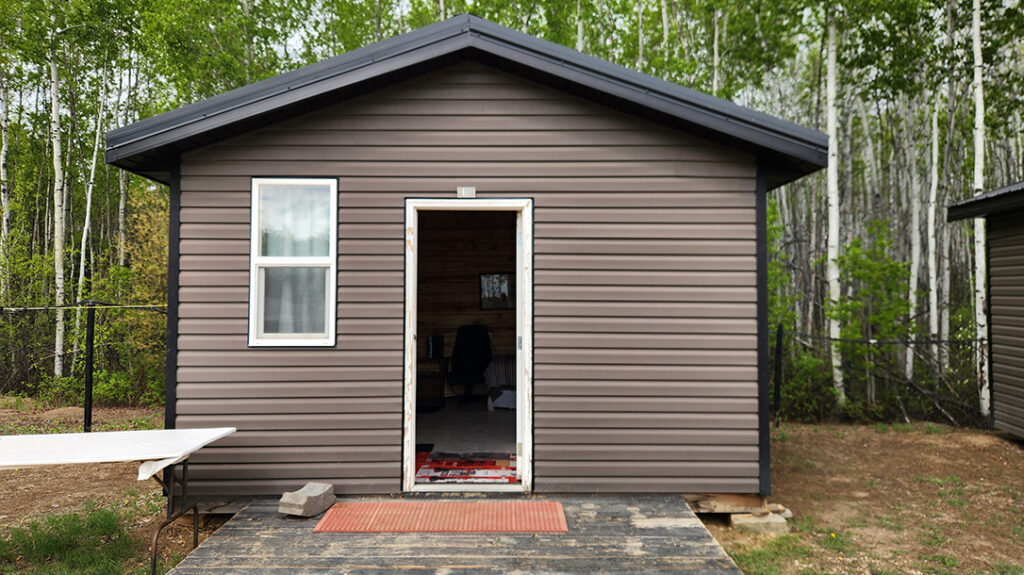
Accommodations
Hunting accommodations, for the most part, are clean and comfortable. They can vary, however, based on the guide and what they use as their lodge. In some cases, they are older ranch homes where hunters will be expected to share a room with other hunters. Occasionally, you’ll come across a large one, allowing you to book a room for each hunter. Once again, if you are heading into the back country, your accommodations will probably be a tent and a sleeping bag.
Advertisement — Continue Reading Below
In most camps, you will have access to a shower, but it may be a very spartan version. Remember that you are out on a hunt and will not need to be squeaky clean. I make it a habit to bring personal cleaning gear like Dude Wipes to get the grunge of the hunt off when I may not get a shower each day. Once again, add this to the checklist of what to ask your guide before you go.
Guide Services
One of the most common questions I get is “What does the guide do?” As a general rule, the guide will do their very best to get you on the animal you are looking to bag. In a Texas mule deer hunt, for example, they will drive you to various areas and use binoculars and spotting scopes to look for good deer. Once they spot one, they will show it to you, and a decision to pursue it will be made. If you do decide to start a stalk, they will go with you and help guide you to get a good shot. In most cases, they will carry your shooting sticks, but you will need to plan on carrying everything else.
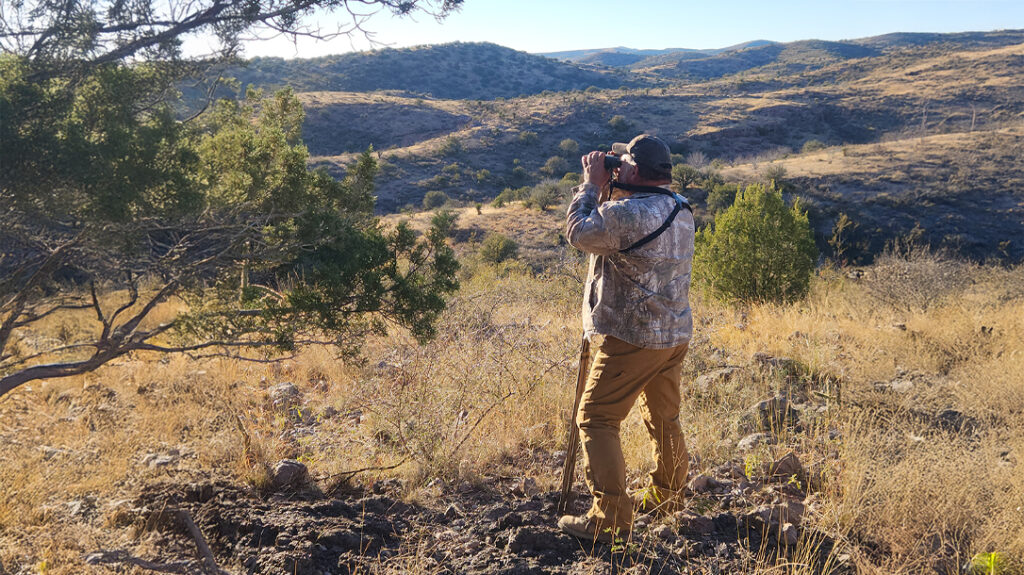
Advertisement — Continue Reading Below
At this point, I encourage you to rig yourself appropriately. Carry everything you need, but not one ounce more. Get a good pack that fits you well and can hold all your daily essentials. I have been on hunts where I have seen people leave a trail of extra gear along the stalk trail as the miles added up.
Help in the Field
Once you get into position, the guide will give you range and tell you specifically which animal to shoot. Make sure you are on the same page as your guide and know what you are shooting at. If you hit the animal and it runs, they will help you track it and recover it.
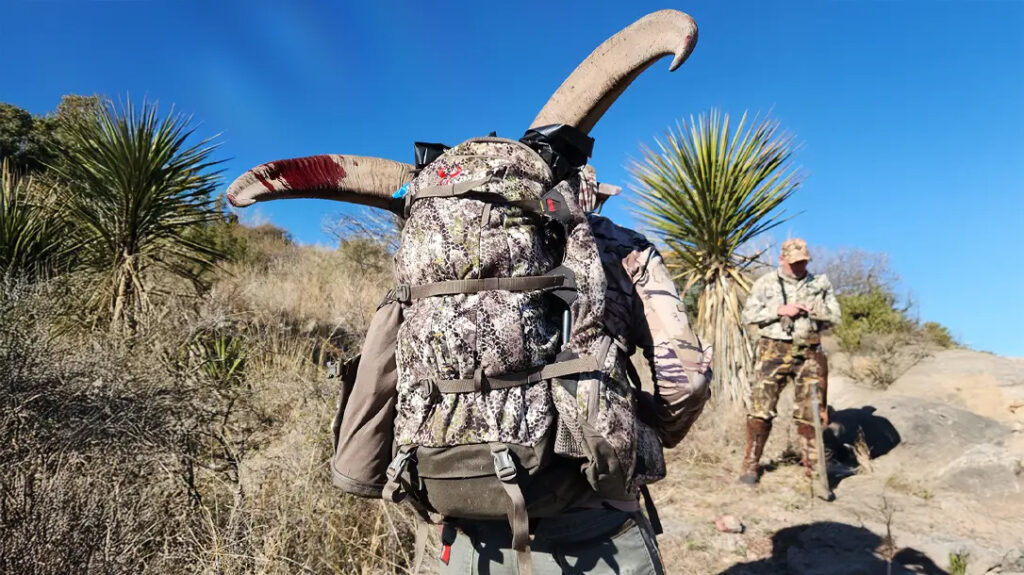
Advertisement — Continue Reading Below
If you are hunting from a stand or blind, the guide will take you there and give you all the information you need. They will then depart, allowing you to enjoy the hunt. If you are nervous about being in a stand-alone, make plans to bring along an observer who can sit with you. Asking a guide to sit with you takes them away from other hunters and their other responsibilities.
Once an animal is down, they will usually gut it on site and prepare it for transport back to the lodge for further processing. They will assist you in tagging the animal and managing its legal aspects. If it is a long distance, you may be tasked with carrying some of the animal out.
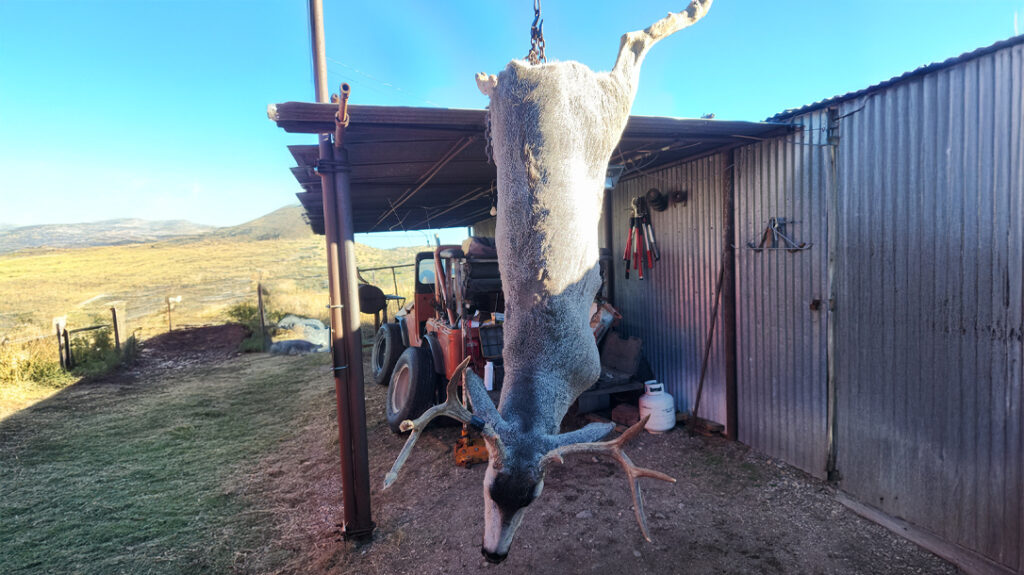
Advertisement — Continue Reading Below
Amenities
Most modern hunting camps have at least a basic Wi-Fi. Remember that most of these camps are remote, and some of the comforts of modern life will not be available. I have found that most guide camps provide linens and towels, but this is not always the case. Discuss your packing list with the guide beforehand. A majority of camps have electricity, but it may be on a generator. In some cases, the generator is shut off at night to conserve fuel. Cell service varies by carrier, but you will usually find a secret signal spot on the ranch.
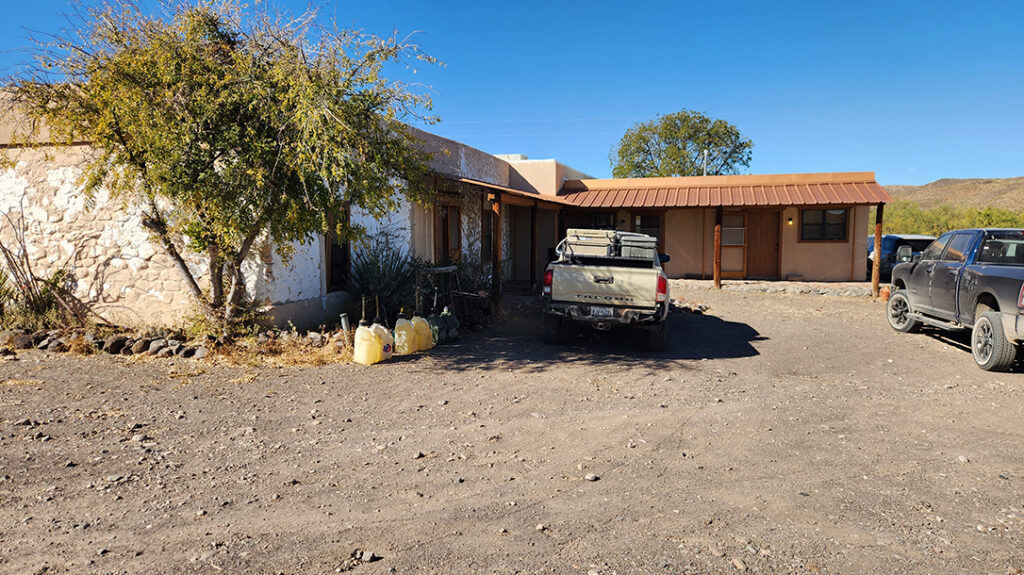
Packing list
Your packing list will vary dramatically based on location. In some hunts, you will need camo head to toe, mud boots, gloves, etc. On other hunts, you can dress in expedition-type pants and a green or khaki shirt. Educate yourself about the environment you are hunting in and pack accordingly. Remember to bring everything you need because it will be tough to secure after you arrive at camp. While the guide may have a couple of pieces of extra gear, they do not keep a storage shed full.
Hunter Responsibilities
As a client and guest of the guide, certain things are considered good form and helpful. If you get an animal, offer to assist with trophy preparation and handling the animal. Be quick to help with clearing dishes and other tasks, such as stocking firewood. They may decline your help, but it is better to offer. Camps operate with a small team of guides and staff, who must manage 80 different tasks. Your help is appreciated.
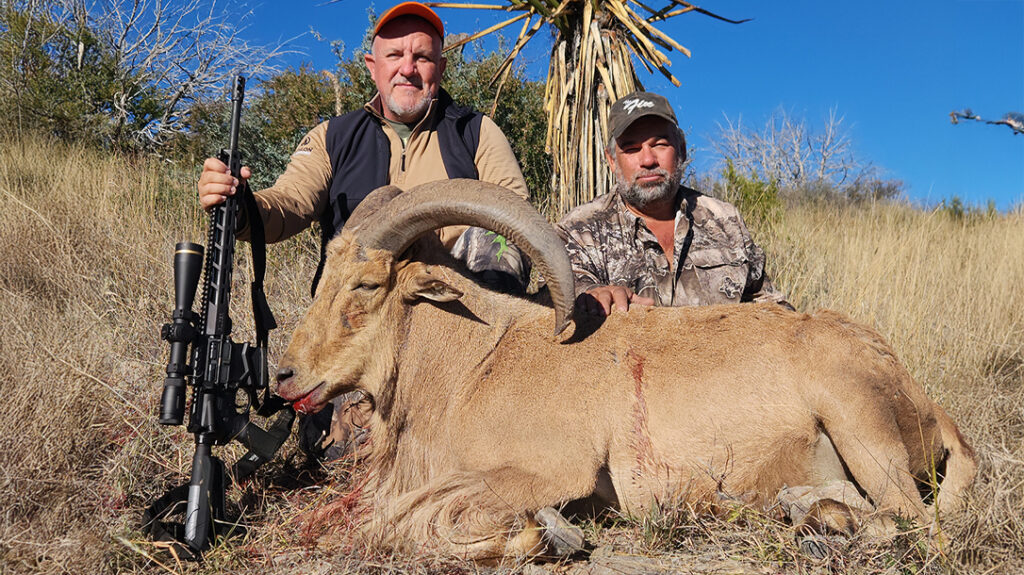
You must be equally courteous to the guides and staff. I have heard of some jaw-dropping examples of rudeness, including sneaking out in the middle of the night to avoid paying any tips. On this topic, it is traditional to tip the guides and staff. It is generally 10% of the cost of the hunt, but can vary. Check with your guide for their standard tip.
Enjoy Yourself at a Guide Camp
A guide camp is the best of many worlds. You get the opportunity to hunt with the help of experienced hunters who know the area. This will be an outdoor and rugged experience that gets you out in the wilderness and away from the daily grind. With the right mindset, it can be an almost spiritual experience. I can’t encourage you enough to find a guide and start making plans to get out for a hunt.
Suggested Questions for Your Guide
- What gear do you suggest for the hunt?
- What are the sleeping arrangements (bunks, cabin tents etc)?
- Do I need to bring linens and towels?
- Is there electricity or generator?
- Is there cell service?
- What should I expect for food?
- What beverages are provided?
- Will someone meet me at the airport, or do I drive in?
- What is standard tipping?
- What is the typical shot distance?
- Will there be other hunters in camp?
- What is the terrain like?
- Are there any additional costs not covered in the hunt package?
- What type of hunt is it? (e.g., spot and stalk, tree stand, etc.)
